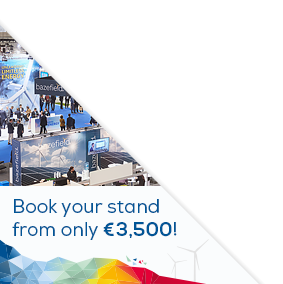Posters
Siblings:
ProceedingsProgrammeProceedingsSpeakersPostersContent PartnersElectrification StageMarkets TheatreR&I ActivitiesStudent DayProgramme Committee & abstracts reviewersPresenters dashboardCome meet the poster presenters to ask them questions and discuss their work
We would like to invite you to come and see the posters at our upcoming conference. The posters will showcase a diverse range of research topics and provide an opportunity for delegates to engage with the authors and learn more about their work. Whether you are a seasoned researcher or simply curious about the latest developments in your field, we believe that the posters will offer something of interest to everyone. So please, join us at the conference and take advantage of this opportunity to learn and engage with your peers in the academic community. We look forward to seeing you there!

PO095: Evaluating the Optimized Operation for Hybrid Power Plant Control Under Power Forecast Errors
Georgios Verikios, Wind Energy System Integration Scientist, TNO - Netherlands Organisation for Applied Scientific Research
Abstract
Hybrid Power Plants (HyPP) have gained increased interest over the last few years. The aggregation of energy generation, storage and conversion technologies presents many benefits among which is the reduction of power forecast errors to increase and secure market revenues. In this work the behavior of a fictitious HyPP is investigated under large power forecast errors at the second time scale. The computational framework for the analysis combines knowledge from different fields - machine learning, optimization algorithms, control theory. A machine learning model provides power forecasts for wind and solar assets. These forecasts are then used to find the optimal energy bids for the day-ahead market, with an Energy Management System (EMS) that contains an optimizer. In this way, optimized hourly reference setpoints are deployed by the EMS for the HyPP. The plant model includes a wind power plant (WPP) a photovoltaic plant (PVP) and a battery energy storage system (BESS) as well as central control logic that ensures that the plant tracks its reference. The current EMS optimizer implementation demonstrated a “greedy” behavior that resulted in minimal profit increase when it was accompanied with large forecast errors and low BESS availability, but overall showed a positive impact on profits. The positive impact was significant when BESS availability was high and the export capacity of the plant limited.







